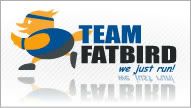Hyponatremia - Over Hydration?
| -- extracted from marathonstartline.com -- Some Do’s and Don’ts on Avoiding Hyponatremia: |
| October 8, 2003 - The more than 200,000 runners approaching the starting line of major marathoners this fall must be warned about a recently identified, potentially life-threatening hazard that may be caused by drinking too much water, hyponatremia. "While the dangers of dehydration are common knowledge amongst amateur and experienced endurance athletes alike, there is something much more dangerous than not enough water: too much water," said Dr. Arthur Siegel, a physician at Harvard-affiliated McLean Hospital in Belmont, Mass., and leading researcher on hyponatremia who has run 20 marathons. "We must educate runners to optimize rather than maximize fluid intake during extreme exercise to avoid water intoxication." Exercise-related hyponatremia may occur during prolonged sports activity such as marathons, triathlons, long-distance hiking or bicycling when fluid intake, including water and sports drinks, exceeds fluid loss. When water dilutes the body's salts, the blood has too much water and too little sodium, causing brain cells to absorb too much water, swell and push against the skull. This can result in nausea, severe fatigue, disorientation, vomiting and, in the most severe cases, seizures, coma and even death. All endurance athletes who over-drink are at risk for hyponatremia, but those most prone to the condition include females and people with slower marathon finishing times (more than 4 hours) who are hyper-vigilant about their water intake . A recent study conducted by Runner's World indicates that 74% of marathon runners take analgesics, and over 88% report use of NSAIDs. However, runners who use nonsteroidal anti-inflammatory drugs (NSAIDs) for pain relief in close proximity to race time may be at additional risk. Katherine "KC" Guevara experienced the horrors of hyponatremia first hand at the Boston Marathon this past April, only one year after the condition caused the collapse and subsequent death of 28-year-old Cynthia Lucero after collapsing at the 22-mile mark. |
| Water Intoxication a Potentially Life-Threatening Medical Crisis |
| "Even though I increased my salt intake the week before the race, I also drank almost three liters of water beforehand and drank more throughout. I knew at mile seven that something was wrong and I was in trouble," said Guevara, a 27-year-old running enthusiast from Centerville, VA. "In the medical tent, I was woozy and slurring my speech and once someone took my sodium levels, they realized I had hyponatremia and gave me some hot, salty broth. The scary thing is, a few years ago, I may have been treated for dehydration - with more water." Despite new hydration guidelines and educational materials developed by the USA Track & Field Association, the American Medical Athletic Association and marathon race directors, many runners have not gotten the word about hyponatremia. Siegel said there are several simple steps runners can take to prevent hyponatremia. "Runners should weigh themselves before and after their next long training run to determine if their body tends to retain fluid during endurance exercise," said Dr. Siegel. "If they gain weight, they are at risk for the condition and should take precautions during the marathon." During a race, Dr. Siegel said it is vital that runners avoid over-drinking. Runners who develop progressive headache, nausea or vomiting should stop all fluid intake, including sports drinks, and seek medical assistance immediately. If a marathoner plans to take a pain reliever, take Tylenol® 8 Hour as a safe over-the-counter choice during endurance sports activity. For more information about hyponatremia, please visit www.marathonstartline.com, a web site designed to educate runners of all ages and abilities on the crucial aspects of running a marathon, including nutrition, apparel, injury prevention and pain treatment. McNeil Consumer & Specialty Pharmaceuticals, a division of McNeil-PPC, Inc., is headquartered in Ft. Washington, PA and markets products such as Tylenol®, Imodium®, St. Joseph®, and Motrin®. |















0 Comments:
Post a Comment
<< Home